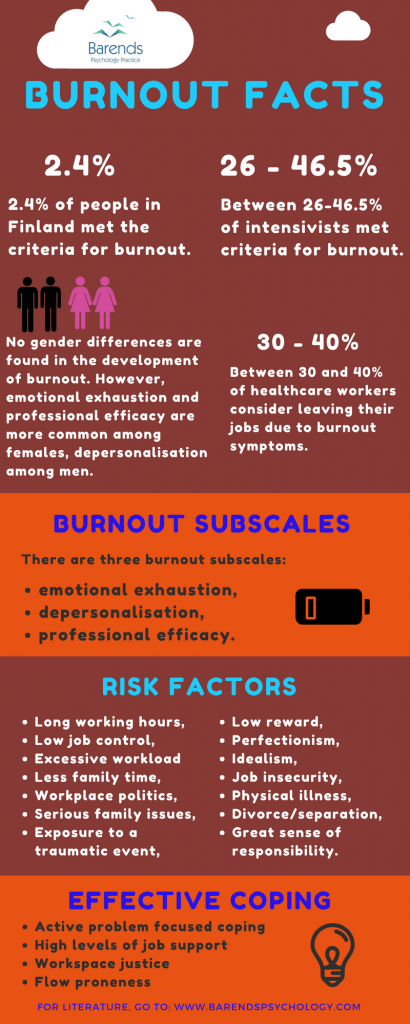Burnout questionnaire

Burnout is not an official mental disorder according to the DSM 5, but psychiatrists and therapists consider burnout to be a serious mental condition. Common burnout symptoms, as measured by the burnout questionnaire, are physical and emotional exhaustion, fatigue, and a lack of motivation and engagement. This burnout questionnaire does not measure professional efficacy or professional accomplishment, because this is considered a consequence of the categories ’emotional exhaustion’ and ‘depersonalisation’.
The burnout questionnaire cannot be used for diagnostic purposes, but does give a good indication about possible burnout signs. Also, the results of the burnout test are accompanied by a recommendation regarding further steps, if necessary. In case you want to discuss the results of this questionnaire with a professional, please do not hesitate to reach out to us. We are more than happy to answer all of your questions.
This questionnaire is the Oldenburg Burnout Inventory [2].
Depression or Burnout?
Many depression symptoms and burnout symptoms are similar, and it is difficult to distinguish between the two of them. However, there are a few differences between depression and burnout; depressed people more often than burned out people feel inferior to others; depression is associated with a lack of reciprocity in private life, whereas burned out individuals experience a lack of reciprocity at work (but not in private life) [1]. For a depression questionnaire, please click here.
Go to:
At Barends Psychology Practice, treatment for burnout is offered. Go to contact us to schedule a first, free of charge, session. (Depending on your health insurance, treatment may be reimbursed).
(Advertisement. For the burnout test, please scroll down.)
Literature
- [1] Bakker, A. B., Schaufeli, W. B., Demerouti, E., Janssen, P. P., Van Der Hulst, R., & Brouwer, J. (2000). Using equity theory to examine the difference between burn-out and depression.
- [2] Demerouti, E., & Bakker, A. B. (2008). The Oldenburg Burnout Inventory: A good alternative to measure burnout and engagement. Handbook of stress and burnout in health care, 65-78.

